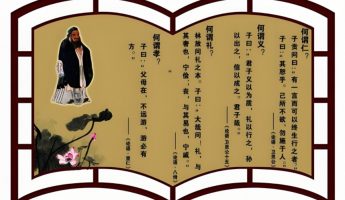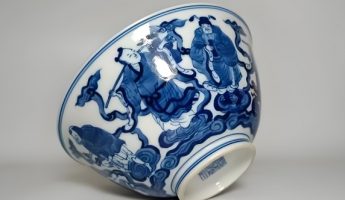Exploring the profound wisdom of Chinese philosophy lies at its core in the concepts of “harmony” and “tolerance” between heaven, earth, humans, things, and ourselves. These ideas not only provide valuable intellectual resources for the ecological balance of the natural world and the harmony of the social and humanistic environment, but also serve as indispensable ideological guidance for modern society. Chinese philosophy is deeply rooted in the pursuit of harmonious coexistence between nature and humanity. Its inclusive, peaceful, and inclusive characteristics are precious treasures bestowed upon all mankind.
Philosophy, as a discipline that explores the mysteries of the universe and the true meaning of life, has a broad and profound field. Chinese philosophy is particularly complex and diverse, covering various schools of thought such as the Hundred Schools of Thought, Confucianism, Buddhism, Taoism, Song Ming Neo Confucianism, and modern schools of philosophy. Given its richness and diversity, any generalization is inevitably incomplete. However, we can try to extract common ideological tendencies from mainstream philosophies such as Confucianism, Buddhism, and Taoism to reveal the unique connotations of Chinese philosophy, mainly including the following six aspects:
The concept of continuity in the universe and natural vitality: Chinese philosophy emphasizes the continuity and natural vitality of all things in the universe, viewing non living beings, plants, animals, humans, and souls as closely connected and intertwined entities in the cosmic currents. This is different from the fragmented view of Western metaphysics. Chinese philosophy does not pursue abstract creation myths or ultimate essence, but believes that nature is an endless and dynamic process of change. Under this concept, the world is not a static mechanical structure, but a generative system in which all subjects participate and interact with each other, reflecting the philosophy of “qi” and emphasizing continuity, change, and infinite vitality.
Overall harmony and the unity of heaven and man: Chinese philosophy advocates for the harmonious coexistence between heaven, earth, humans, things, and myself, believing that all things in the universe are interdependent and dynamically balanced. This concept breaks down the boundaries between humans and nature, humans and society, and humans and themselves, emphasizing mutual dependence and promotion. The Confucian philosophy of benevolence, the Taoist philosophy of governing by inaction, and the Buddhist philosophy of compassion all embody the idea of overall harmony. Under the guidance of this cosmology, people pursue spiritual resonance with heaven and earth, achieving the unity of personal moral cultivation and cosmic spirit.
Perseverance and Innovation: Chinese philosophy advocates the spirit of endless life and creativity. The saying in the Book of Changes that ‘wealth is a great cause, and renewal is a flourishing virtue’ is the best interpretation of this spirit. Yi, Confucianism, Taoism, and Buddhism all regard “Dao” as an eternal movement and change in the universe, encouraging people to pursue higher realms through continuous innovation.
Moral cultivation and inner transcendence: Chinese philosophy places particular emphasis on moral civilization, viewing moral cultivation as the key to achieving harmony between individuals and society. Although Confucianism, Buddhism, and Taoism have different paths, they all emphasize the importance of inner cultivation. Through moral cultivation, people can achieve inner transcendence and reach higher levels of life. This transcendence is not only a spiritual sublimation, but also a commitment to social responsibility.
Concrete rationality and analogical thinking: Chinese philosophy emphasizes the exploration of life experiences and values, rather than simply conceptual speculation. Its way of thinking has practical and concrete characteristics, emphasizing the grasp of the essence of the world through intuitive means such as images and numbers. At the same time, Chinese philosophy also has inherent logical and rational systems, such as the “Heavenly Way”, “Dao Dao”, “Humanity” and other orders that contain rich logical, rational, moral, aesthetic, and ecological significance.
Practical application and integration of knowledge and action: Chinese philosophy emphasizes the unity of theory and practice, advocating the spirit of practical application and integration of knowledge and action. Ancient philosophers not only focused on theoretical construction, but also on transforming knowledge into practical actions to solve practical problems. They actively practice their philosophical beliefs, pursue the unity of knowledge and virtue, and constantly enhance their personal cultivation and sense of social responsibility. This spirit is not only reflected in personal growth, but also profoundly influences the development direction of the country and society.



